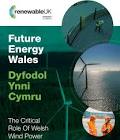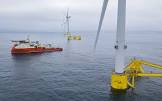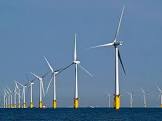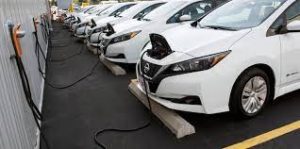- ‘Lies, damned lies etc…’ - 13th February 2026
- Missing in action - 12th February 2026
- Travel news again - 11th February 2026

Business leaders have warned renewable energy targets may be missed, and environmentalists in Wales highlighted recent trends that appear to undermine the so-called ‘green revolution’.
One told The Eye: “It’s ridiculous. We are all meant to be driving electric cars and getting renewable energy in a few years, but it’s never going to happen!”.
As The Times reported earlier this month: ‘Achieving the (UK) government’s target to decarbonise Britain’s energy system by 2030 will require a “gargantuan” effort to reduce grid connection and planning delays, a leading energy consultancy has warned’.
 The Welsh Government (WG) has a target for Wales to meet 70 per cent of its electricity demand from Welsh renewable electricity sources by 2030, but even they have admitted that a recent move towards that target may be temporary.
The Welsh Government (WG) has a target for Wales to meet 70 per cent of its electricity demand from Welsh renewable electricity sources by 2030, but even they have admitted that a recent move towards that target may be temporary.
In November last year RenewableUK Cymru (RC) found that the country risked failing to meet its renewable energy targets, and no onshore wind projects above 50MW had been approved since 2016.
Their report pointed to poor grid connectivity as well as a sluggish, under-resourced planning system that had hampered progress and deterred developers from pursuing the ambitious wind energy projects needed in Wales.

The planning system is of particular concern, and in 2023 it became clear that 41 per cent of applications under the energy Developments of National Significance (DNS regime) were refused, and only six per cent of planning decisions were made within a specified statutory timeframe of 10 months.
Plans for Wales’ first 100MW floating offshore wind farm were delayed after the UK Government’s annual contracts for difference scheme failed to offer enough funding to make it commercially viable.

Blue Gem Wind, the Pembrokeshire-based developer behind Project Erebus, has confirmed it did not bid for a government renewable energy contract because rising costs meant the price offered by Westminster was not sufficient.
The trade body for sustainable energy and infrastructure in Wales said then that delivery timescales for onshore wind projects in particular had been slow, and a lack of grid infrastructure was holding back the entire renewable energy sector in Wales.

RC’s director Jess Hooper said at the time: “Wind power is the backbone of Wales’ net zero ambitions, yet the evidence suggests not enough is being done to nurture the growth of that critical backbone.
“As a result, Wales risks falling short of its power generation needs by 2035”.


Meanwhile changes to the planning system for renewable energy schemes in Wales were proposed in a bid to speed up the process of getting them built.
Decisions on schemes up to 50MW would no longer have to be referred to ministers for final approval.
Size-wise, this could encompass a wind farm with more than ten turbines or a solar farm covering more than 100 acres (40 hectares) of land.

In a speech to renewable energy developers at a conference in Newport, the WG minister Rebecca Evans, MS, conceded that improvements to the planning system were needed if Wales were to deliver green jobs and meet climate targets.
Ms Evans declared that plans had been set out too to “address the shortage of planners at both local and national levels“.

She proclaimed: “Accelerating infrastructure planning decisions is one of the Welsh Government’s top priorities – we need to make it as efficient as possible for all concerned”.
Bute Energy (BE) Managing Director (MD), Stuart George, said: “£47 billion could be invested in Wales through renewable energy projects by 2035.
“For communities to really see benefits of that potential investment, the planning system needs to be properly resourced and provide clarity and certainty for communities and developers.”

Figures from the car industry look no more positive as Electric Vehicle (EV) sales have fallen far short of expectations.
Nissan, Ford and Renault are all well behind targets, according to estimates from New Automotive (NA), a consultancy, because people in the UK see huge barriers to buying EVs.

The main barrier is cost, which is cited in a survey by YouGov of those considering a non-EV car: 54 per cent said it was a major hurdle.
It seems there is a range of ‘major hurdles’, if there are warnings renewable energy targets may be missed, and environmentalists have highlighted recent trends that put question marks over the Welsh Government’s (WG’s) much vaunted ‘green revolution’.

The memories of our Editor, Welshman Phil Parry’s astonishing decades-long award-winning career in journalism as he was gripped by the rare disabling condition Hereditary Spastic Paraplegia (HSP), have been released in a major book ‘A GOOD STORY’. Order it now
Blwyddyn Newydd Dda/Happy New Year to all our readers!









